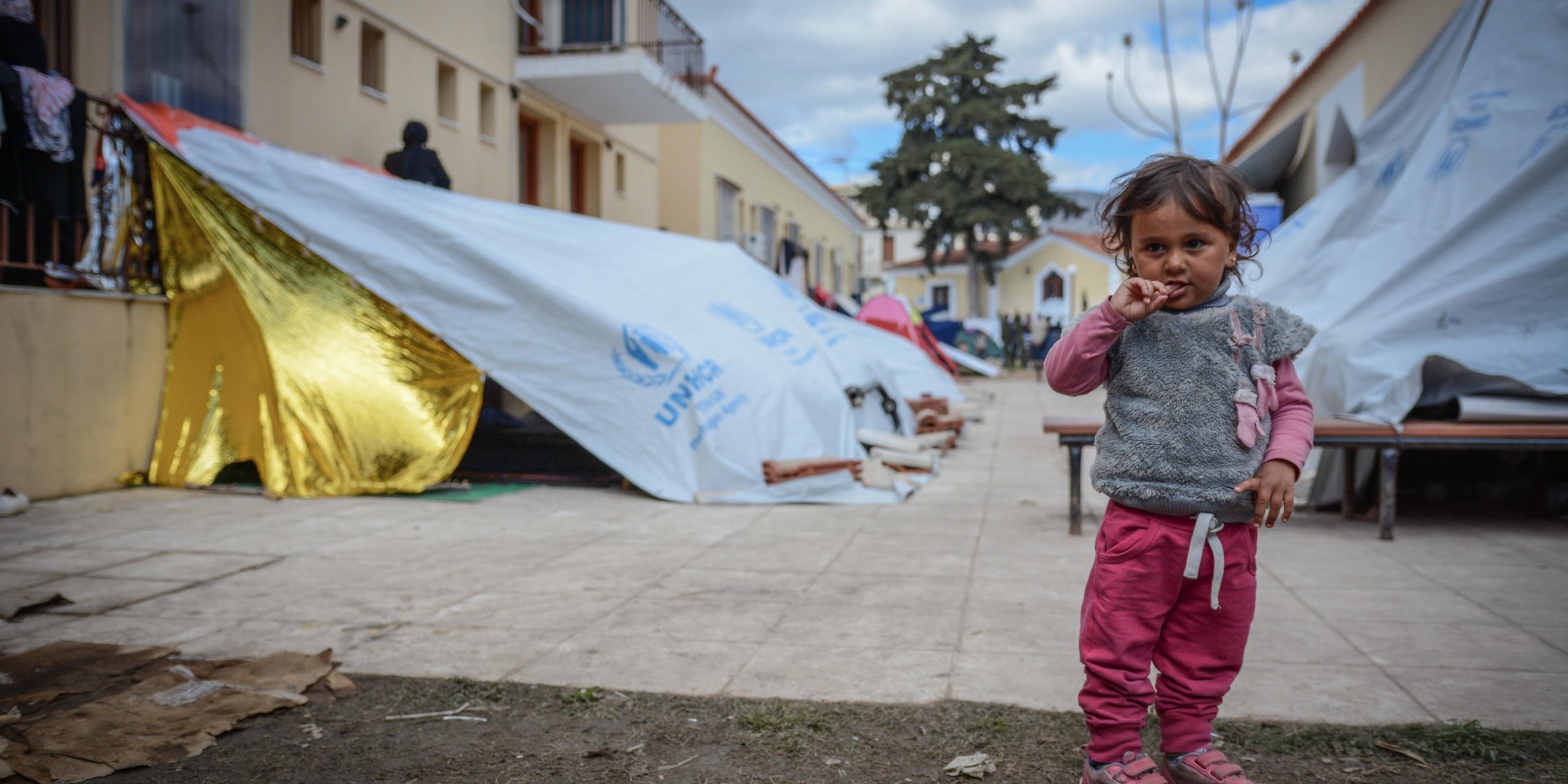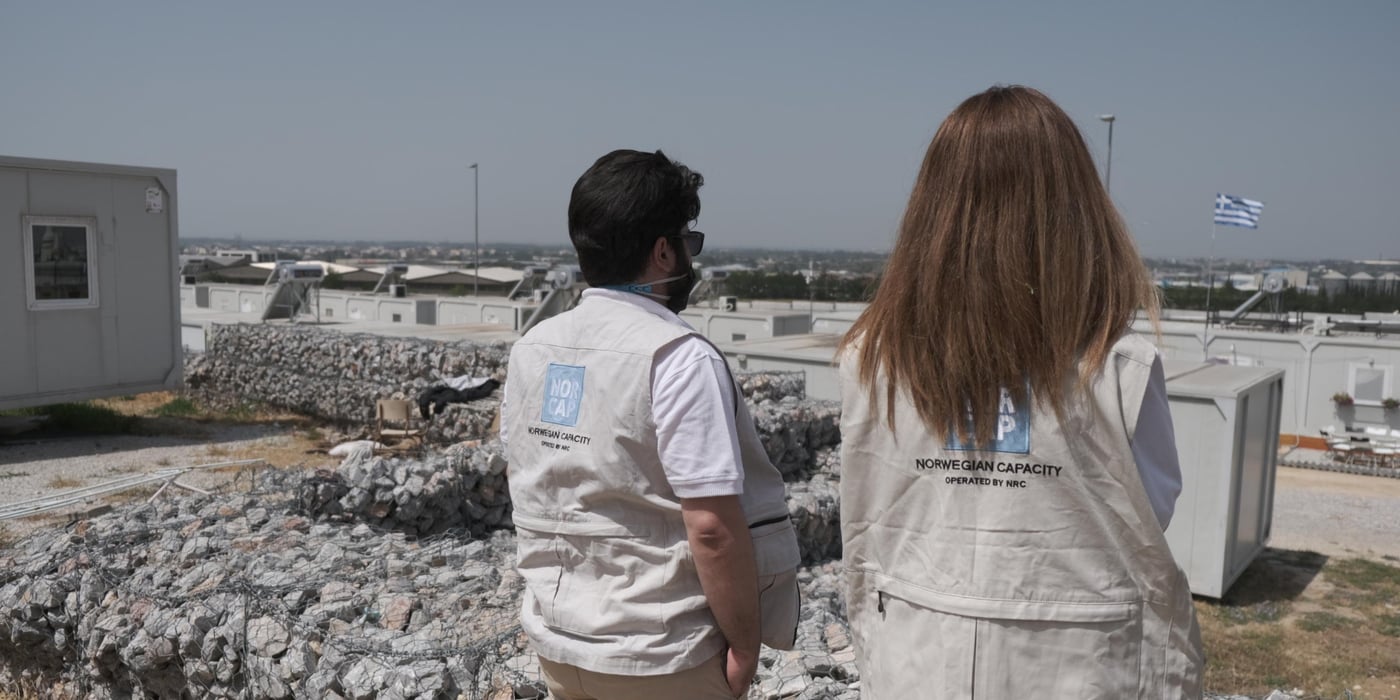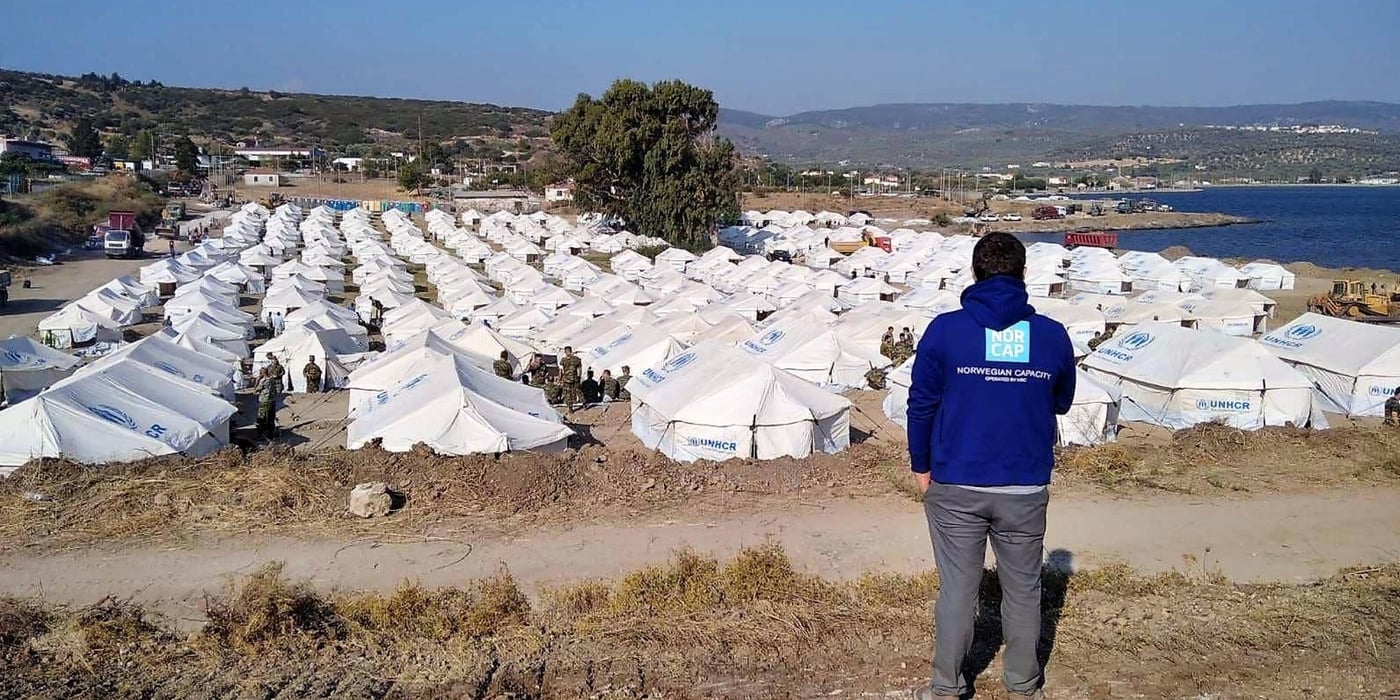
Vangelis Louros’s life since he graduated with a degree in information technology has been dominated by working as a waiter in restaurants. He lives on Chios, an island a 30-minute ferry ride from the Turkish coastline, dependent on tourism, part of Greece, a country with a million unemployed people.
Then in 2015, more than a million refugees fled across the narrow strait between Turkey and Greece to seek safety in Europe. Islanders rushed to help desperate men, women and children, putting aside for a time the Greek financial crisis.
NRC arrived on the island in late 2015, when thousands of refugees were arriving each day, needing hot meals, blankets and shelter. Louros got a job in the food team, a job that combined elements of logistics and health and safety.
Had to help
“I saw this refugee crisis unfold before my eyes, every day. I had to help,” said Louros, 32. “And through NRC I was able to help. It was the first real job I had -- full time, full insurance. I got training – something I hadn’t come across in other jobs in Greece.”
NRC built its staff to more than 40 people, with financial backing from the European Union’s Civil Protection and Humanitarian Aid Operations, providing food, education and assisting the Greek government with refugee sites.

Need new jobs
From August, the Greek government plans to take over services to refugees on the Greek islands.
For aid groups like the NRC, that means Chios staff – the Greeks like Louros and refugees who have provided support to their compatriots - need to find new jobs, if other funds aren’t available to address the huge humanitarian needs on the islands.
That is no easy task in a region that already has one of the highest unemployment rates in the European Union. The unemployment rate for those aged 25 to 34, like Louros, is 30 percent. The overall rate of 23.2 percent is the highest in the European Union. Seven in 10 jobless Greeks have been unemployed for more than a year.
Those willing to move to the northern Greek city of Thessaloniki, where NRC is placing vulnerable people in rented accommodation, an EU-funded project, and providing support to accommodation sites, are able to apply for jobs there. So far, ten, including Louros, have been hired.
I saw this refugee crisis unfold before my eyes, every day. I had to help.Vangelis Louros, 32, NRC food security technical assistant
Prevent gaps
“The move to transfer responsibility to the government on Chios is, overall, a positive step,” said Country Director Gianmaria Pinto, “But it’s important that the transfer is executed promptly and smoothly, to prevent any gaps appearing in services provided to refugees.”
Even if NRC has to leave in August, the legacy of the refugee crisis on Chios is that there is a team of trained and committed people able to step into new jobs to help the government.
“That would be the best and most efficient transfer of knowledge,” said Pinto, who adds that NRC is willing to remain longer on the island to help in the event funding is available.
Even though the numbers of refugees arriving on the islands has fallen, 5,000 people have made the journey from the Turkish coast this year,nearly half have arrived on Chios, stretching accommodation capacity.
In Thessaloniki, Louros will work on the team providing site management, a different job, but one he says Chios has prepared him for.
“I have learned to work to deadlines, I learned to be responsible, to keep on top of things, to be organized,” he said. “I could learn a new language. I can use what I studied, but for humanitarian work. A window has opened that I had never imagined.”




